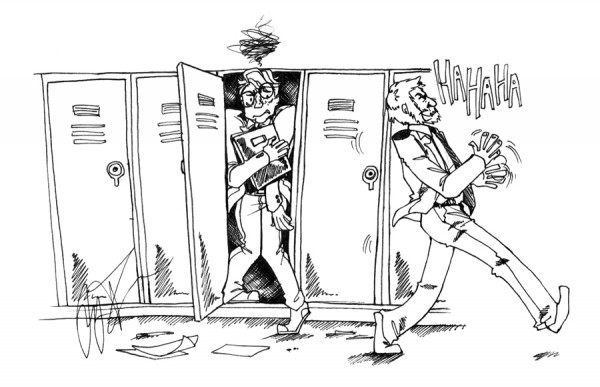
Tensions surfaced between professors and GW’s top leaders last week after Board of Trustees chair Nelson Carbonell called out tenured faculty for abusing their power and acting like “bullies.”
Though surprising, this wasn’t a spontaneous revelation. Carbonell’s accusation came after meetings with more than 600 professors, and he said many noticed an imbalance in representation between those who have tenure and those who don’t. His meetings were part of an initiative to learn how to revise GW’s faculty code, a set of rules that outline details on academic freedom and the tenure process.
We applaud the chair for putting a microscope to these critical policies – but Carbonell might have confused matters more than he clarified them.
There’s good reason to believe there could be bullying and that GW’s governance culture needs change. Many who are critical of tenure argue that the policy, which grants professors immunity from firing after they prove themselves as top researchers and teachers, is designed to be a shield. Instead, it’s sometimes used as a sword.
Tenured faculty’s near infallibility gives them significant power, which Carbonell rightly believes has gone unchecked. Professors are using authority to take the reins on important administrative decisions from those without tenure, who can be fired without cause at any time.
There’s a clear inequity in the power distribution: Even in the Faculty Senate, where professors gather to advocate for policy changes at GW, only tenured faculty have a say. All others are excluded. Not only are all members of the Faculty Senate required to be tenured, but non-tenured faculty aren’t even permitted to vote for their representatives.
Non-tenured staff, including faculty researchers, adjuncts and part-time professors, make up nearly 80 percent of the professor core at GW. By the nature of the current system, four of every five professors don’t have any say.
This is all part of a larger power struggle that has restrained GW’s progress over the last two years. Top administrators, shooting for higher rankings and more prestige, have put pressure on deans to raise standards and lift individual colleges.
But tenured faculty have called into question that administrative hierarchy, exerting undue authority too often. While deans need constructive feedback, professors have dished out scathing reviews, threatened votes of no confidence and run defamation campaigns against school leaders.
Faculty governance is one thing. Faculty uprising is another.
Carbonell and top administrators need to solve issues surrounding GW’s dean problem. When faculty rise up against top academic leaders, fundraising and rankings slip. The University as a whole is hurt.
These issues – alleged bullying of non-tenured faculty and rapid dean turnover – are rooted in the culture of a university that has given tenured faculty a loud voice in decision making. They shouldn’t be afraid to strike a better balance of power between deans and non-tenured professors.
Going forward, as the faculty code is altered and tenure rules are revised, GW’s leaders should ensure that non-tenured faculty members have a vote on the faculty’s singular governing institution and can provide input on major decisions, like dean reviews.
Now, “there are things that happen here that would get you kicked out of fourth grade, and it’s intolerable,” Carbonell told the Faculty Senate on March 21.
But he neglected to delve too deeply into specifics. He stirred controversy without backing up his accusations. The broad generalization leaves us wondering which schools and departments have particular problems, and questioning the exact nature of those problems.
The fact is that tenure is here to stay. But the right governance structures need to be in place so tenure is balanced against two often vulnerable positions: deanships and un-tenured faculty positions.
If GW is going to grow as an institution, those voices can’t be stifled. Professors who have this job security and hold leadership positions will always maintain more clout with administrators. After all, a vote of no confidence can cast a dark cloud over a college presidency.
Administrators, trustees and faculty now need to put the governance structures in place so that the infighting and power grabs become mere speed bumps, not barriers, on GW’s path to growth.





